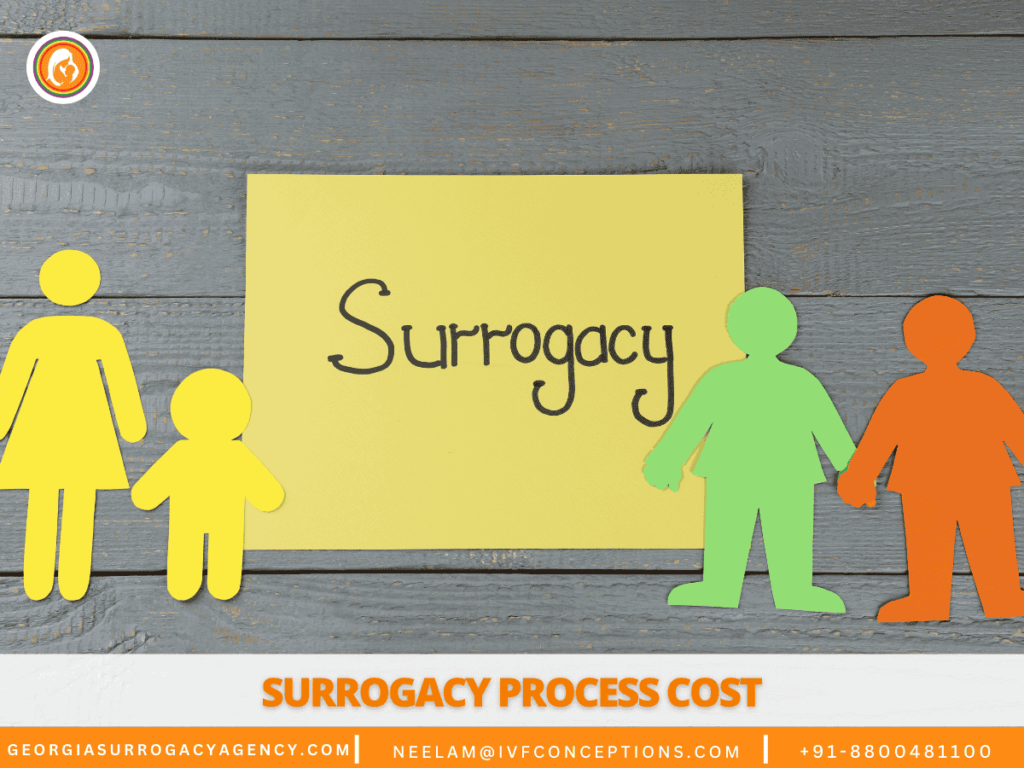Is Surrogacy Legal in Canada? A Complete Guide to Canadian Surrogacy Laws
Yes, surrogacy is legal in Canada, but only on an altruistic basis—meaning surrogates cannot be paid beyond reimbursable expenses. The Assisted Human Reproduction Act (AHRA) strictly prohibits commercial surrogacy, making it illegal to compensate a surrogate for carrying a pregnancy.
However, intended parents can cover the surrogate’s pregnancy-related expenses, such as medical costs, maternity clothing, and travel. While surrogacy laws vary by province, Canada remains a popular destination due to its ethical framework, access to high-quality healthcare, and legal recognition of intended parents.
In this guide, we break down Canada’s surrogacy laws, costs, eligibility, and key legal considerations for intended parents.
📞 Get in Touch for a Free Surrogacy Consultation
📱 +91-8800481100 (WhatsApp | LINE | Viber)
📧 neelam@ivfconceptions.com
🌐 https://www.georgiasurrogacyagency.com/
Key Takeaways for surrogacy in canada
- Surrogacy is legal in Canada, but only altruistic surrogacy is permitted, meaning surrogates cannot be paid for their services.
- Canadian surrogacy laws and surrogacy regulations in Canada vary from province to province, making it essential to understand the specific laws in your area.
- Intended parents and surrogates must comply with the Assisted Human Reproduction Act (AHRA) and other relevant laws to ensure a legal and successful surrogacy process.
- The cost of surrogacy in Canada can vary, but it is generally less expensive than surrogacy programs in the United States.
- Understanding the laws and regulations surrounding surrogacy in Canada is crucial for a successful and stress-free experience, and knowing that surrogacy is legal in Canada is the first step.
- Canadian surrogacy laws are in place to protect the rights and well-being of all parties involved, including intended parents, surrogates, and the children born through surrogacy.
- Surrogacy regulations in Canada are subject to change, so it is essential to stay informed and up-to-date on the latest laws and regulations.
Additional guides:
For more resources on IVF and Surrogacy, browse our other web page- IVF Conceptions.
For more resources on IVF and Surrogacy, browse our other web page- Complete Surrogacy.
Understanding the Legal Status of Surrogacy in Canada
Surrogacy Laws in Canada
1. The Assisted Human Reproduction Act (AHRA)
The AHRA, enacted in 2004, regulates surrogacy in Canada. Key legal aspects include:
- Altruistic Surrogacy Only: Intended parents cannot offer financial compensation to a surrogate beyond reimbursable expenses.
- Prohibition of Surrogacy Agencies: It is illegal to advertise or broker surrogacy arrangements for profit.
- Permitted Reimbursements: Surrogates can be reimbursed for pregnancy-related expenses, including medical costs, legal fees, and maternity clothing, provided they submit receipts.
- Legal Parentage Recognition: Intended parents must go through a legal process to establish parental rights after birth.
2. Provincial Differences in Surrogacy Laws
Surrogacy laws vary across provinces, affecting how parental rights are established. Key variations include:
|
Province |
Parental Recognition Process |
|
Ontario |
Intended parents can obtain a pre-birth order. |
|
British Columbia |
Allows direct parental recognition at birth. |
|
Quebec |
It does not recognize surrogacy contracts, so it requires legal adoption. |
|
Alberta |
Courts issue parentage declarations post-birth. |
Who Can Pursue Surrogacy in Canada?
Surrogacy in Canada is open to all intended parents, including:
- Heterosexual couples facing infertility.
- Same-sex couples and LGBTQ+ individuals.
- Single intended parents.
There are no nationality restrictions, meaning international intended parents can also pursue surrogacy in Canada, provided they comply with immigration and legal requirements.
Requirements for Surrogacy Arrangements in Canada
To start surrogacy in Canada, you need to meet some key surrogacy requirements. You must have a surrogacy agreement and counseling. The rules for Canadian surrogacy eligibility are strict. You must have given birth before and live with your child(children) now.
Surrogate Eligibility and Screening
The surrogacy process in Canada has several steps. This includes screening and medical tests. Surrogates should be between 21 and 44 years old. They should also have a BMI of 35 or below and be in good health.
They must not smoke and have no history of drug or alcohol problems.
Some important requirements for surrogacy in Canada are:
- Age: 21-44 years old
- BMI: 35 or below
- Previous birth: Must have given birth before
- Residency: Must be a Canadian citizen or permanent resident
- Health: No history of pregnancy complications, chronic medical conditions, or mental health issues
Understanding the surrogacy requirements in Canada and Canadian surrogacy eligibility is crucial. It helps ensure a smooth and successful surrogacy process in Canada. Meeting these requirements can boost your chances of a positive experience and a successful outcome.
The Canadian Surrogacy Process: Step by Step
Understanding the Canadian surrogacy process is key. It involves several steps and a timeline in Canada. The first step is screening and medical checks. These include a medical and psychological evaluation.
This ensures the surrogate’s health is good. It involves tests and talks with doctors.
Next, legal documents and contracts are made. These outline the surrogacy agreement. This agreement is a legal contract between the intended parents and the surrogate.
It usually takes 2 to 3 weeks to draft and sign the agreement.
The Legal Process for Intended Parents
1. Drafting a Surrogacy Agreement
Before starting the medical process, both parties must sign a legally binding surrogacy agreement, outlining:
- The surrogate’s rights and responsibilities.
- Reimbursable expenses.
- Legal parentage process.
2. Parental Recognition & Birth Registration
In most provinces, intended parents do not need to adopt the child, but they must follow legal procedures to be recognized as legal parents. This may involve:
- A pre-birth order in provinces like Ontario and British Columbia.
- A post-birth declaration in other provinces.
- Adoption in Quebec, where surrogacy contracts are not recognized.
Cost of Surrogacy in Canada
While surrogates cannot be paid, intended parents must cover expenses related to the pregnancy. The estimated cost of surrogacy in Canada ranges from $80,000 to $100,000 CAD, including:
|
Expense |
Estimated Cost (CAD) |
|
IVF and medical procedures |
$15,000 – $30,000 |
|
Legal fees |
$5,000 – $10,000 |
|
Surrogate reimbursements |
$20,000 – $30,000 |
|
Agency & coordination fees |
$10,000 – $20,000 |
|
Travel & miscellaneous |
$5,000 – $10,000 |
Costs vary based on medical needs, location, and legal requirements.
The Canadian surrogacy expenses fall into a few areas. These include medical costs, the surrogate’s expenses, and legal fees. A gestational surrogacy cycle in Canada can cost between $80,000 to $100,000 or more. Remember, surrogacy reimbursement in Canada only covers actual expenses, not extra money.
Here are some estimated costs for surrogacy in Canada:
- Medical evaluation: $0 – $1,000
- Surrogate psychological evaluation and intended parent(s) implication counseling: $800 – $1,000
- Surrogate expenses (pre-pregnancy): $1,500 – $3,000+
- Surrogate expenses (pregnancy/postpartum): $18,000 – $35,000+
It’s important to think about these costs carefully. Make sure you know the surrogacy cost in Canada well before starting your journey.
Working with Canadian Surrogacy Agencies
Thinking about surrogacy in Canada? Working with surrogacy agencies can really help. These agencies are key in matching parents with surrogates. They guide you through the journey, helping with the legal and medical parts.
Here are some perks of working with Canadian surrogacy agencies:
- Access to a large pool of potential surrogates
- Comprehensive screening and matching process
- Guidance on legal and medical procedures
- Emotional support and counseling
Choosing a good Canadian surrogacy agency is crucial. They should care about everyone’s well-being. This way, your journey will be smooth and successful. Surrogacy agencies in Canada offer lots of help, making things easier for you.
Rights and Responsibilities of Surrogates and Intended Parents
In Canada, surrogacy rights are protected by the Assisted Human Reproduction Act. This act clearly states the surrogate mother’s rights and the intended parents’ obligations. Knowing these rights and duties is key to a successful surrogacy journey.
The surrogate mother’s rights include making health and fetal decisions during pregnancy. She is the main decision-maker until she gives consent. This consent can’t happen until the child is at least seven days old.
The intended parents’ obligations include paying back the surrogate for pregnancy-related costs. They must also handle legal paperwork, like birth registration and parentage laws. In places like Alberta, a court order is needed to make them the child’s legal parents.
It’s vital to understand surrogacy rights in Canada and everyone’s duties for a good surrogacy experience. Being well-informed and ready helps both intended parents and surrogates. This way, they can confidently move through the process and achieve the best results for everyone.

Gay Surrogacy in Canada
Gay surrogacy in Canada is a complex and highly regulated process. Same-sex couples can pursue surrogacy here, but they must follow the country’s laws and regulations. Altruistic surrogacy is the only legal type in Canada. This means the surrogate isn’t paid but can get back expenses related to the pregnancy.
The cost of gay surrogacy in Canada is between €145,000 and €165,000. Payments are made at different stages, starting with an initial €50,000. LGBTQ surrogacy in Canada is supported by organizations like Proud Fertility. They help educate people about single and gay parenthood.
Some important things to know about same-sex surrogacy in Canada include:
- Surrogates in Canada can only be reimbursed for out-of-pocket expenses related to the surrogacy process.
- All babies born in Canada are granted Canadian citizenship at birth.
- The average wait time for gay surrogacy in Canada is about 12 to 18 months with the assistance of a surrogacy provider.
Working with a reputable surrogacy agency is crucial. Following the Canadian government’s regulations ensures a successful and smooth process for gay surrogacy in Canada.
Pros and Cons of Doing Surrogacy in Canada
Thinking about surrogacy in Canada? It’s key to know the good and bad sides. A big Canadian surrogacy advantage is the strict rules. These rules keep everyone safe and healthy. But, they can also mean higher costs and longer waits.
Here are some main pros and cons of surrogacy in Canada:
- High success rates thanks to top-notch medical tech and clinics
- Strict rules to protect everyone’s rights and health
- Support and counseling for surrogates and parents-to-be
- Higher costs, with total expenses up to $100,000 per pregnancy
- Longer waits because of fewer surrogates
Choosing surrogacy in Canada depends on your situation and what you value most. Knowing the pros and cons of surrogacy in Canada helps you make a smart choice. This way, you can find a surrogacy arrangement that fits your needs.
Why Canada is a Preferred Surrogacy Destination
Many intended parents choose Canada for surrogacy due to:
- Legal protection: Clear laws ensure transparency and ethical practices.
- High-quality healthcare: Access to advanced fertility treatments and prenatal care.
- LGBTQ+ friendly policies: Equal rights for same-sex couples and individuals.
- Citizenship benefits: Babies born in Canada receive Canadian citizenship by birth.
Surrogacy Options Outside Canada – International Surrogacy Countries for Canadian Citizens
Canadian citizens who can’t find surrogacy in Canada might look at international surrogacy options. Countries like the United States, Mexico, and Georgia are possibilities. But, remember, Canadian surrogacy abroad comes with big costs. These include medical bills, legal fees, and travel expenses, which can change a lot.
In the U.S., you’ll find top-notch medical care and clear legal paths, but it’s pricey. Mexico, on the other hand, has made surrogacy a protected medical act. This makes it a good choice for some. It’s key to know the laws and rules of international surrogacy options before you decide.
When thinking about Canadian surrogacy abroad, making a genetic link is crucial for Canadian citizenship. This can be tricky. It’s wise to get help from a skilled expert to guide you through it.
Some important things to think about for surrogacy countries for Canadian citizens are:
- Legal recognition of surrogacy
- Costs and expenses associated with the process
- Genetic link requirements for Canadian citizenship
- Quality of medical care and established legal processes
Conclusion: Making an Informed Decision About Canadian Surrogacy
Surrogacy is legal in Canada but strictly regulated to ensure ethical practices. While commercial surrogacy is prohibited, intended parents can legally cover a surrogate’s expenses under altruistic surrogacy laws.
With strong legal protections, high medical standards, and an inclusive approach, Canada remains a top choice for intended parents worldwide. If you are considering surrogacy in Canada, consulting an experienced fertility lawyer and clinic is crucial to navigating the process smoothly.
To make a good choice about surrogacy in Canada, think about the good and bad sides. Make sure your choice matches your family’s values and future plans. By looking at all parts of the process, you can start this journey with confidence and clear goals.
FAQs about whether surrogacy is legal in Canada
Is surrogacy legal in Canada?
Yes, surrogacy is legal in Canada. But it’s only for altruistic reasons. This means surrogates can’t get paid. The laws about surrogacy vary by province.
What is the legal status of surrogacy in Canada?
In Canada, the Assisted Human Reproduction Act rules on surrogacy. It bans commercial surrogacy. Laws differ by province, with some being stricter.
What are the requirements for surrogacy arrangements in Canada?
To start surrogacy in Canada, you need a few things. You must have a surrogacy agreement and go through counseling. This ensures everyone is ready for the journey.
What is the step-by-step process for surrogacy in Canada?
The surrogacy process in Canada has many steps. It starts with screening and medical checks. Then, there’s legal paperwork and medical procedures. This guide will walk you through it all.
How much does surrogacy cost in Canada?
Surrogacy costs in Canada vary. It depends on the province, the agency, and the parents’ situation. This section will cover the costs, including what you can and can’t pay for.
What are the benefits and risks of working with Canadian surrogacy agencies?
Canadian surrogacy agencies offer a lot of help. They support both parents and surrogates. This section will talk about the good and bad of using these agencies, and why choosing a good one is key.
What are the rights and responsibilities of surrogates and intended parents in Canada?
In Canada, both surrogates and intended parents have rights and duties. This section will cover what these are, including the legal rights of surrogates and the responsibilities of intended parents.
Can same-sex couples pursue surrogacy in Canada?
Yes, same-sex couples can try surrogacy in Canada. But, it’s a complex process. They must deal with the country’s laws, which can be tough.
What are the pros and cons of doing surrogacy in Canada?
Surrogacy in Canada has its ups and downs. Intended parents need to think carefully before deciding. This section will look at the good and bad sides of surrogacy in Canada.
What are the surrogacy options for Canadian citizens outside of Canada?
Canadian citizens might look at surrogacy abroad if they can’t in Canada. This section will explore options outside Canada, including the pros and cons of going abroad for surrogacy.
Source Links
- https://en.wikipedia.org/wiki/Surrogacy_in_Canada – Surrogacy in Canada
- https://www.cbc.ca/documentarychannel/features/surrogacy-in-canada-has-increased-400-in-10-years-more-facts – Surrogacy in Canada Has Increased 400% in 10 Years: More Facts

Highly esteemed, authoritative, and trusted professional with a 14-year of experience in international surrogacy. Advocate for Secure, Legal, and Affordable International Surrogacy.
Neelam Chhagani, MA (Counselling Psychology) and Holistic Infertility and Third-Party Reproduction Consultant.
Member of European Fertility Society, Best Surrogacy Blogger of 2020, with 300 dedicated blogs, and top contributor on Quora for Surrogacy.





Add Your Comment